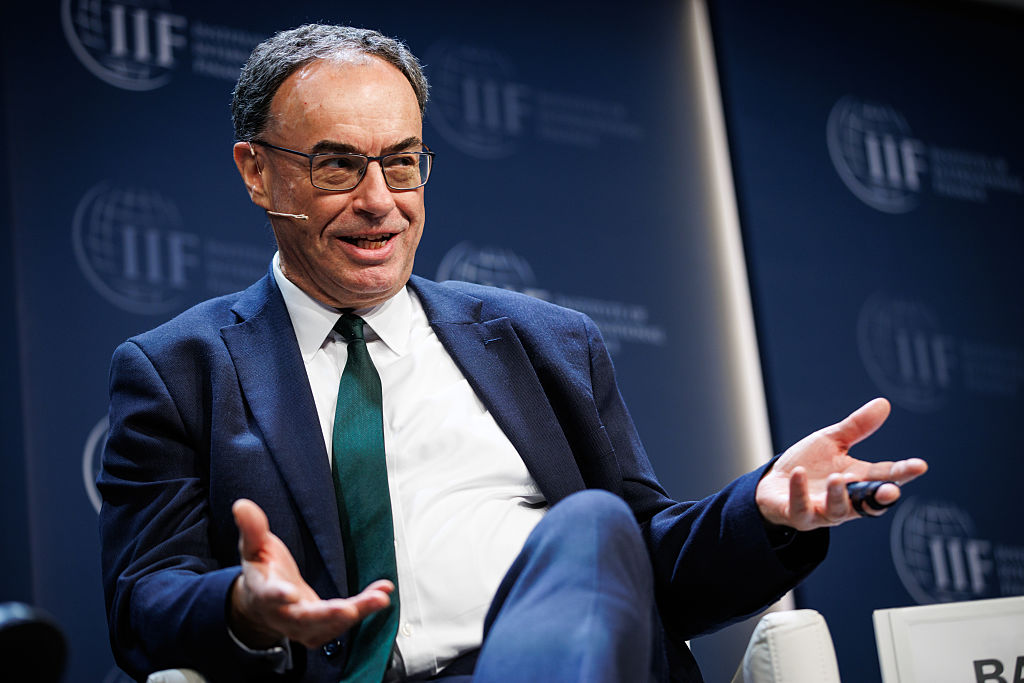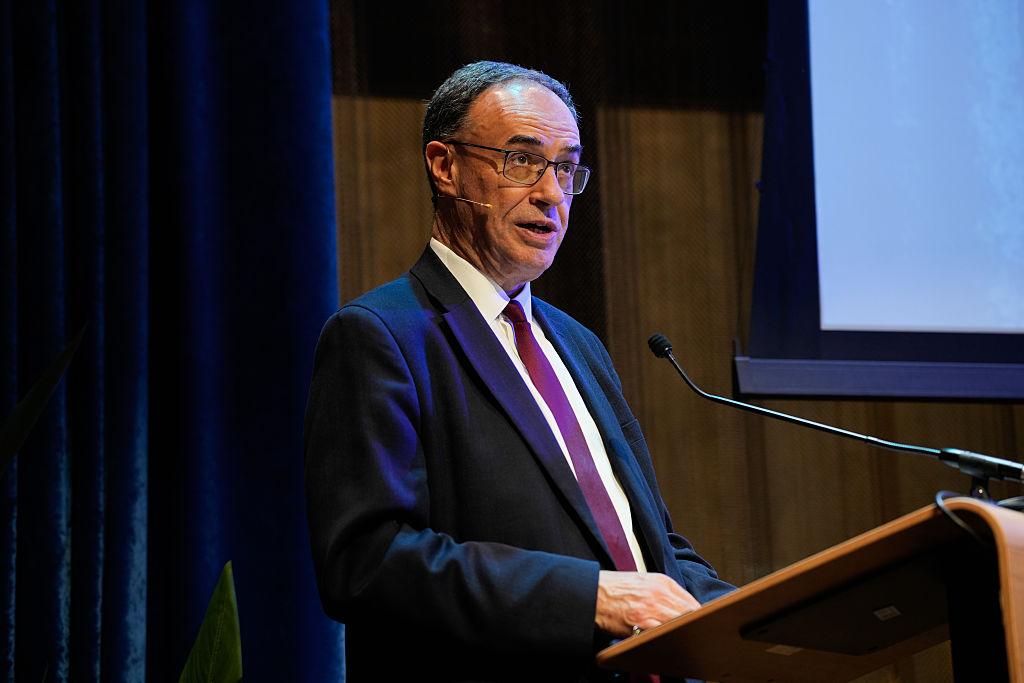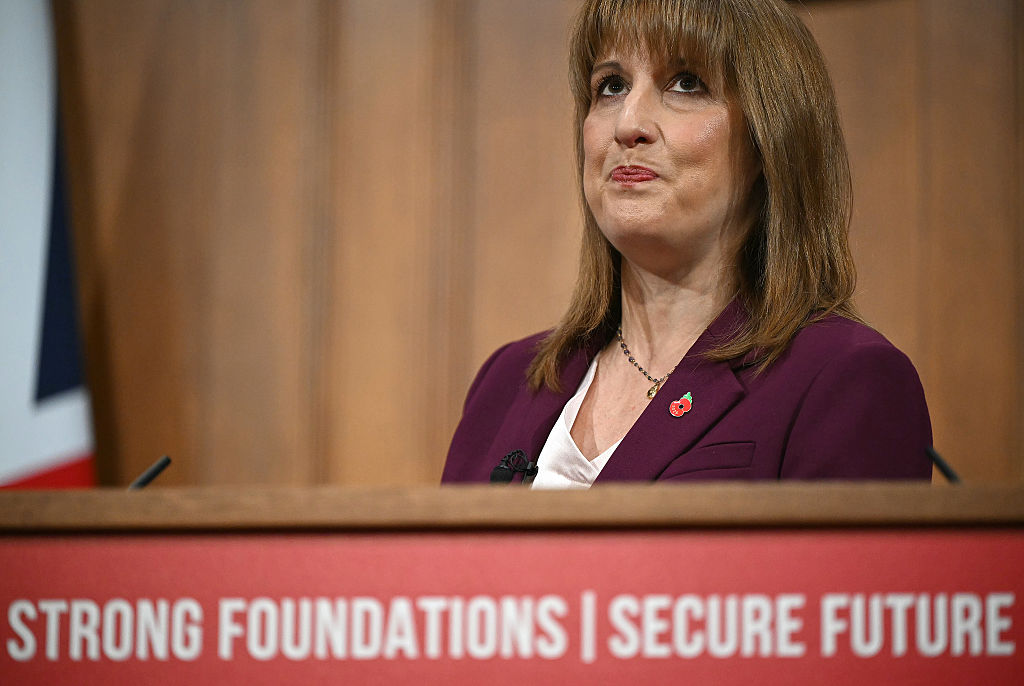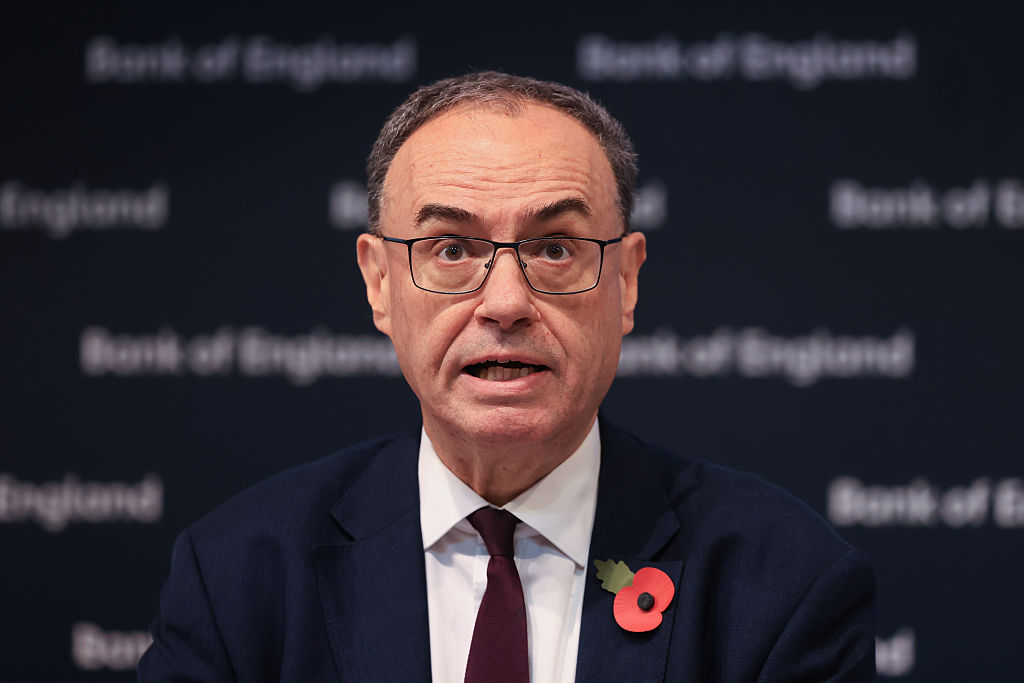
In association with Aberdeen
Summary
- The Bank of England’s Monetary Policy Committee (MPC) decided on UK interest rates today
- The MPC has held rates at 4%, despite UK economic growth stagnating
- Inflation came in at 3.8% for September, below the expected 4% level
- But with inflation still close to double the Bank’s target rate, experts expected the MPC to remain cautious
- The upcoming Autumn Budget is another source of uncertainty
- Chancellor Rachel Reeves: "Today's forecast shows that inflation is due to fall faster than previously predicted."
| When will interest rates fall further? | UK inflation forecast | MPC meeting dates |
Good afternoon, and welcome to our live coverage of the upcoming interest rates decision.
The Bank of England’s Monetary Policy Committee (MPC) announces its latest decision tomorrow (6 November), and most experts expect it to hold interest rates at 4%.
The MPC, led by Bank of England governor Andrew Bailey, faces a tricky balancing act. On the one hand, the economy is weakening: UK wage growth is slowing, while unemployment climbs.

Bank of England governor Andrew Bailey and the MPC face a difficult balancing act.
Inflation was expected to peak at 4% in September before falling through 2026, but the consumer prices index (CPI) reading came in at 3.8% for the month, unchanged since July, perhaps indicating that the current inflationary wave is less severe than had been expected.
But it is still nearly double the Bank’s target rate of 2%, and as such most experts think the MPC will stick with a cautious hold tomorrow.
Follow us here for rolling insight as well as live reporting of the MPC’s decision.
When does the Bank of England announce UK interest rates?
The Bank of England’s next interest rate decision will be announced tomorrow (6 November) at midday.
This is the penultimate base rate meeting of 2025, with the final meeting of the year coming just in time for Christmas on 18 December.
This week’s meeting will also include the quarterly Monetary Policy report, which will provide a detailed update to the Bank of England’s outlook and forecasts for inflation and other economic considerations.
Date | Announced |
|---|---|
Thursday 6 November | MPC summary and minutes (including base rate decision), November Monetary Policy report |
Thursday 18 December | MPC summary and minutes (including base rate decision) |
The MPC meets roughly every six weeks. See our explainer on upcoming MPC meeting dates for the upcoming interest rate decision schedules.
Where have interest rates gone in the last 12 months?
Interest rates have been on a downward trajectory since August 2024, when the MPC voted to cut the base rate for the first time since March 2020.
Since then, the bank rate has been cut five times, going from 5.25% in August 2024 to 4% today.
In this most recent set of interest rate cuts, the MPC has maintained a “gradual and careful” approach. Cuts have more or less followed a quarterly rhythm so far, but this trend is not necessarily going to continue if the MPC decides that the economic circumstances do not warrant a rate cut.
BoE governor Andrew Bailey regularly notes that monetary policy is not on a set path.

The MPC won’t take any big decision before the Budget
There's a case to be made for an interest rate cut in November – but I don't think they'll do it.
We all expected inflation to come in higher in September, but if the latest reading is the peak as the Bank of England expects, then inflation will hopefully fall from here. And the economic picture is weakening, so the MPC will want to support growth however it can.
But for me, it's just too close to the Budget. Who knows what Rachel Reeves will spring on us later this month? There's so much unpredictability that I think the MPC will wait and see, and if there is to be another interest rate cut this year it will be at the December meeting.
The irony of this is of course that, if Reeves had scheduled her "Autumn" Budget slightly earlier in the year, then maybe the Bank would have been able to support her growth ambitions by cutting rates sooner…
Creditspring: ‘Costs aren’t going to go down overnight’ whatever the MPC decide tomorrow
It can be easy to over-emphasise the importance of the MPC’s regular meeting to dictate interest rates for regular households.
The decision – whether interest rates are hiked, held, or cut – are certainly important for much of the economy, but ordinary Brits often will not feel much of a difference either way, says Tamsin Powell at Creditspring.
“Whether the Bank of England will hold or reduce rates on Thursday, the message to households remains clear that every day costs aren’t going to go down overnight. Inflation remains stuck at 3.8%, and with further tax rises now expected as part of the Autumn Budget, many families and households will be facing a double squeeze on living costs.”
Powell added that while a reduction in interest rates could provide “short-term” relief on borrowing costs and monthly payments, “with so many households already stretched, it won’t address the ongoing pressures from rising bills, stagnant wage growth, and the arrival of the seasonal spending peak as winter and the festive season approaches.”
"Now more than ever, households need to take stock of their finances and plan ahead. Being realistic about spending and setting aside even small savings can help people stay in control as costs rise.”
What is the link between inflation and interest rates?
One of the most important economic metrics used by the Bank of England to determine their decision on interest rates is the rate of inflation.
The central bank has a mandate to keep inflation at the target level of 2%. This is done by pulling various monetary policy levers – the most obvious being the base rate.

Rising prices are one of the biggest influences on the Bank of England's monetary policy: it targets an annual inflation rate of 2%.
Broadly speaking, the BoE will raise interest rates when inflation is too high, and lower them when inflation is too low.
Inflation in 2025 has been much higher than the 2% target. While price growth dipped from 3% in January 2025 to 2.6% in March, it has since soared to more than double the target – being 3.8% in July, August, and September.
When will inflation fall?
Though inflation was almost double the Bank of England’s target in September, most analysts expect that things will only get better from here on.
The Bank of England predicts inflation will peak in September and continue on a downward trajectory throughout 2026 before settling at around 2% in early 2027.
This view is shared by the economists surveyed by the Treasury each month, all of whom agreed that the average level of inflation would be lower in Q4 2026 than Q4 2025.
With inflation gradually falling back towards target next year, the MPC will likely have an easier time justifying interest rate cuts than they did when inflation was higher.
Economists expect MPC to hold UK interest rates at 4%
There are various factors at play in the MPC’s decision tomorrow. As we’ve seen, inflation might be about to fall – but it hasn’t yet. The economy is plugging away, but is far from thriving.
“We think a majority of committee members will want to see much clearer evidence of downside surprises in the data being sustained and the Agents' findings on next year's pay deals before voting to cut Bank Rate again,” said Edward Allenby, senior economist at Oxford Economics.
Allenby highlights that the MPC will be much better-informed by the time of its December meeting. There will have been two further inflation reads (covering October and November) and sets of labour market data by then, and the Autumn Budget will be a known quantity.

Rachel Reeves's Autumn Budget could have a significant bearing on the timing of the next UK interest rate cut.
“We think a majority of committee members will want to see much clearer evidence of downside surprises in the data being sustained, and the Agents' findings on next year's pay deals before voting to cut Bank Rate again,” said Allenby.
Sanjary Raja, chief UK economist at Deutsche Bank, is also expecting a hold.
“We expect the MPC to maintain Bank Rate at 4%,” said Raja. “But our call is now finely balanced. The case for a quarter-point rate cut has strengthened materially on the back of a dovish round of data.”
Thanks for following our rolling preview of tomorrow's UK interest rates decision. We're finishing here for today, but join us again tomorrow morning for more preview analysis as well as live coverage of the decision and reaction from midday.
Good morning, and thank you for joining our coverage of the Bank of England's UK interest rate decision today.
As a reminder, the decision is set to be announced at midday. Most analysts are expecting the Monetary Policy Committee to hold interest rates at 4%, but some members are expected to push for a cut given the UK's lacklustre economy.
We'll bring you in-depth preview and analysis before the announcement at midday, followed by live coverage of the result and views on what it all means for your money.
What is the Monetary Policy Committee?
We’ll be talking a lot today about the Monetary Policy Committee (MPC) and its members, so now is a good time to clarify exactly what we’re talking about.
The MPC is a committee within the Bank of England that is responsible (as the name suggests) for setting monetary policy – specifically, the Bank Rate, also known as the base rate. This is generally what is being referred to when we say ‘interest rate’.
In brief, a lower Bank Rate encourages economic growth (by encouraging lending, borrowing and spending) while a higher rate reduces inflation (by doing the opposite).
The MPC has nine members: Bank of England governor Andrew Bailey, three deputy governors for monetary policy, financial stability and markets and banking, a chief economist and four external members that are directly appointed by the chancellor. The Bank of England's governor serves as chair of the MPC.

The governor of the Bank of England, Andrew Bailey, is also chair of the Monetary Policy Commitee.
The committee's membership reflects a range of views and perspectives. ‘Hawks’ tend to favour tighter monetary policy as a counter to inflation, whereas ‘doves’ lean towards looser policy that encourages economic growth.
All nine members vote on a proposed motion from the governor at the end of the MPC meeting: at the last meeting in September, that proposal was to hold interest rates at 4%, and won 7-2 (the two dissenters both having voted for a 25 basis point cut).
How will the MPC vote?
August’s MPC meeting saw a rare tied vote, leading to a second round of voting before a majority was reached to cut interest rates by 25 basis points.
Analysts don’t foresee this level of drama this time around. Sanjay Raja, chief UK economist at Deutsche Bank, expects six of the MPC’s nine members to vote to hold rates.
“We see a 6-2-1 vote tally to keep Bank Rate unchanged,” said Raja. He foresees Dave Ramsden and Swati Dhingra voting for a 25 basis point cut, while he expects Alan Taylor – who proved the deciding vote at August’s meeting, after changing his vote to from a 50 basis point cut to a 25 basis point cut – to once again vote for a larger rate cut.
But moderates on the panel are likely to stay cautious at this meeting.
“We think the centrists on the MPC will want to see three things before dialling down restrictive policy again,” said Raja. “One, a turn in inflation expectations; two, details around the inflationary impact of the Autumn Budget; and three, and most importantly, signs that pay settlements are tracking closer to 3%.”
How do you think the MPC will vote on interest rates?
The MPC’s decision on UK interest rates is just minutes away. How do you think the committee will vote?
Markets pricing in 35% chance of UK interest rate cut
Most experts we’ve heard from think the MPC will keep UK interest rates at 4%. But that’s far from certain.
“Markets are pricing in a 35% probability of a cut to 3.75%,” says Lawrence Kaplin, chief market strategist at Equals Money. “Traders will be closely monitoring the vote count and new growth and inflation forecasts for clues as to the bank's future monetary policy path.”
Have your say on the poll below – what do you think the MPC’s interest rate decision will be?
BREAKING: MPC votes to hold UK interest rates at 4%
As widely expected, the MPC has voted to hold interest rates steady for the time being. More analysis to follow.
Close MPC vote ends in UK interest rates held
The MPC’s vote split the committee 5-4, with the four dissenters voting to reduce Bank Rate by 25 basis points to 3.75%.
Those four were Sarah Breeden, Swati Dhingra, Dave Ramsden and Alan Taylor. The meeting’s summary minutes state that “For two members in this group (Swati Dhingra and Alan Taylor), policy was already significantly over-restrictive, which could unduly damage activity and possibly lead to an undershoot in inflation in the medium term.”
Governor of the Bank of England ultimately held the deciding vote. While less concerned about the risks of persistent inflation, he is said to have believed "there was value in waiting for further evidence".
Holding UK interest rates was “the right decision”
Despite the weakening economic backdrop, most experts seem to feel that holding off on a rate cut was correct at this stage given inflation is still running at nearly double the Bank’s target rate.
“The Bank will be in a stronger position after the dust settles from the Budget, armed with additional jobs and inflation data, to judge whether further easing is warranted in December,” said George Brown, senior economist at Schroders.
“A cautious approach remains appropriate given the risk that high inflation becomes entrenched, due to sticky wage growth and subdued productivity,” Brown continued, while conceding that much will depend on the economic fallout of the Autumn Budget.
The Budget is a "wildcard" for UK interest rate-setters
The timing of this MPC decision was never going to be conducive to cutting rates. The Bank of England thinks that September – the most recent month for which data is available – will mark the peak of the inflationary cycle, and while the read came in lower than expected, there is as yet no data to support the hypothesis that price increases are now slowing.
There are two more inflation data releases before the MPC’s next meeting in December, as well as two more sets of labour market data, which will give the committee a much clearer picture of the economy next time it sets UK interest rates.
Perhaps more significantly, by then it will also be armed with the knowledge of the Autumn Budget, which chancellor Rachel Reeves will deliver on 26 November.

Chancellor Rachel Reeves will deliver her Autumn Budget between now and the next MPC interest rates meeting.
“The upcoming Budget introduces a wildcard into proceedings,” says Rob Morgan, chief investment analyst at Charles Stanley. “The chancellor has doubled down on her ambition to ease the rising cost of living, which implies she will be careful about which tax rises form part of her policy announcement mix,” he added.
Reeves delivered a speech earlier this week strongly hinting that she could be about to break a manifesto commitment not to raise income tax. If so, that policy could help the MPC’s next rates decision, as it would be implicitly disinflationary.
“An income tax rise in particular would serve to quell demand, and with it some of the inflationary flames,” said Morgan.
Monetary Policy Committee: inflation “judged to have peaked”
The 5-4 vote split on the MPC today underscores the difference in views on the committee. A strong chunk clearly believed that there is a case to be made for cutting rates, and the MPC’s report, which was also published today, underscores why.
“Consumer prices index (CPI) inflation is judged to have peaked,” the report states. The Bank of England’s projections have, until now, assumed that September would mark the high point of the latest wave of inflation.
The report went on to state: “Progress on underlying disinflation continues, supported by the still restrictive stance of monetary policy. This is reflected in an easing of pay growth and services price inflation. Underlying disinflation is being underpinned by subdued economic growth and building slack in the labour market.”
And while “the risk from greater inflation persistence has become less pronounced recently, and the risk to medium-term inflation from weaker demand more apparent,” the balance of views on the MPC was that “more evidence is needed on both” before cutting UK interest rates further.
Reeves responds to UK interest rates decision
The MPC’s report also included the following line regarding the future trajectory of UK inflation:
“Inflation is likely to fall to close to 3% early next year before gradually returning towards the 2% target over the subsequent year.”
Previously, the MPC had forecast that inflation would fall down to its 2% target rate in Q3 2027.
Chancellor of the exchequer Rachel Reeves has latched onto this optimistic revision in her statement accompanying today’s decision.
“Under this government, we have seen five interest rate cuts that have helped bring down costs for families and businesses and today's forecast shows that inflation is due to fall faster than previously predicted,” said Reeves.
“At the Budget later this month I will take the fair choices that are necessary to build the strong foundations for our economy so we can continue to cut waiting lists, cut the national debt and cut the cost of living,” she added.
Deutsche Bank: three things today’s UK interest rates decision tells us
Sanjay Raja, chief UK economist at Deutsche Bank, draws three key takeaways from today’s MPC meeting.
“One, the overall MPC is putting more weight on downside risks to growth (as opposed to upside risks to inflation) – a major shift from the August decision," said Raja.
“Two, while the MPC omitted the word ‘careful’ it maintained that rates would move gradually in a downward direction ‘if progress on disinflation continues’.
“Three, governor Bailey explicitly noted that rather ‘than cutting Bank Rate now, I would prefer to wait and see if the durability in disinflation is confirmed in upcoming economic developments.’” Raja noted that this nod towards the upcoming releases confirms that they will be key in determining whether there will be a rates cut in December.

Bank of England governor Andrew Bailey is looking towards upcoming economic data before deciding on the next UK interest rates cut.
What are the chances of a December cut?
Any borrowers that had hoped that the MPC might reduce interest rates will have to wait for the next meeting, scheduled for 18 December, at the earliest.
But markets at this stage seem to view the balance of probability in favour of a rate cut in December.
“Given the better-than-expected news on inflation last month, today’s Monetary Policy Committee vote was tight,” said Frances Haque, chief economist at Santander.
“Near-term rate cut pricing changed little,” following today’s UK interest rate vote, “with markets still assigning about a 60% chance of a cut next month,” said Roman Ziruk, senior market analyst at global financial services firm Ebury.
Bank of England governor Andrew Bailey’s comments today indicate that the MPC will lean heavily on the double dose of economic data that will be published between now and 18 December.
“It’s clear that MPC members want to be sure that the outturn of data in October is not simply a one-off… before making any material changes,” said Haque. “Whether or not we'll see a base rate reduction before the end of 2025 will depend heavily on what comes out of the Budget, and whether we see recent positive trends in inflation and wage growth continue in upcoming data releases.”
How do UK interest rates affect your money?
The Bank Rate is the key metric underpinning that effectively underpins the financial system in the UK.
While the Bank of England has been cautiously lowering UK interest rates for over a year, at 4% they still remain well above their levels just three years ago. In November 2022, interest rates were hiked from 2.25% to 3%. Go back a further year to November 2021, and the base rate stood at just 0.25%.
Higher rates effectively mean higher returns for lenders and savers, but greater costs for borrowers.
“Despite today’s announcement, now is still a good time for households to take stock of their finances, as providers continue to adjust their products in response to market conditions,” said Charlie Evans, money expert at Compare the Market.
We’ll bring you updates of what today’s UK interest rates decision means for borrowers and savers later today.
UK interest rate hold: what it means for borrowers
Mortgages
While the Base Rate hasn’t changed today, that doesn’t mean all mortgage holders need to wait to see their rates fall.
“A hold means borrowers with tracker rates will have to play the waiting game,” said Sarah Coles, head of personal finance at Hargreaves Lansdown, but fixed rates could start to fall sooner.
“We’ve already seen fixed rates cut by the big banks in recent days, and the fact the vote was so close will cement expectations of rate cuts sooner rather than later, so this may not be the last of the cuts,” said Coles.

While interest rates were kept on hold today, some fixed-rate mortgages could see a drop regardless.
Credit cards and personal loans
“For borrowers with credit cards or personal loans, rates are likely to remain largely unchanged for now,” said Charlie Evans, money expert at Compare the Market. “But it’s worth noting that many providers set their own rates independently of the Bank of England. This means you could still find a more affordable deal by comparing what’s available, depending on your credit score and the type of card you’re applying for.”
UK interest rates hold: what it means for savers
Today’s MPC decision is unlikely to have any immediate effect on savers.
“Savings rates offered by banks and building societies tend to follow the Bank Rate,” said Charlie Evans, money expert at Compare the Market. “In this instance, they may decide to hold deposit and savings rates steady in line with the Bank’s decision.”
But with competition between providers intense, Evans adds that savers might be able to find a better rate by shopping around.
“Current account switches peaked in July this year, with August and September the next most popular months – proving banks are stepping up their offers to attract new customers,” he said.
“The best rates across the board have been holding on impressively over the past few weeks, particularly in the easy access savings and cash ISA markets,” said Mark Hicks, head of active savings at Hargreaves Lansdown. “In some cases the best on the market has actually crept up a little.”
But Hicks warned that the minutes of today’s MPC meeting “could put these rates under pressure” as they indicate a more doveish policy going forward.
“Noises from the Bank about the potential for future cuts could also mean some movement from fixed-rate savings,” said Hicks. “It means anyone who is planning to fix their savings for a period might want to take advantage while so many great rates remain.”
With rates looking likely to fall in future, cash savers might want to consider the relative merits of saving vs investing – and, indeed, whether or not now is the time to start thinking about getting started in investing if they haven’t already.
Thanks for following our live coverage of the MPC's latest UK interest rates decision. We're going to end live reporting here for now, but keep a watch out across MoneyWeek for future updates on what today's decision means.
We'll also bring live coverage of upcoming inflation data releases and, of course, the Autumn Budget later this month.

